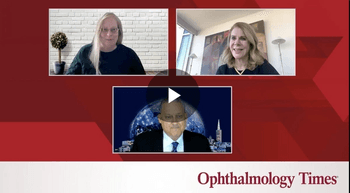
Andrew Iwach, MD, and Adrienne Graves, PhD, co-founders of Glaucoma 360, preview what attendees will experience at the 2021 version of the CME/CE Symposia, Annual Gala, and New Horizons Forum.

Andrew Iwach, MD, and Adrienne Graves, PhD, co-founders of Glaucoma 360, preview what attendees will experience at the 2021 version of the CME/CE Symposia, Annual Gala, and New Horizons Forum.
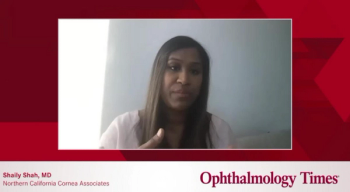
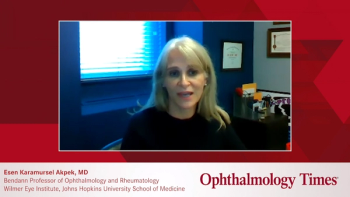
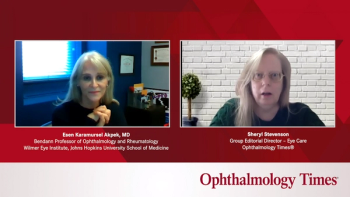

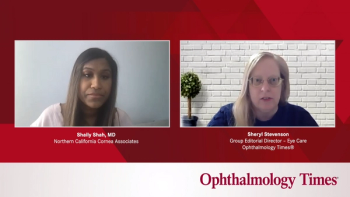
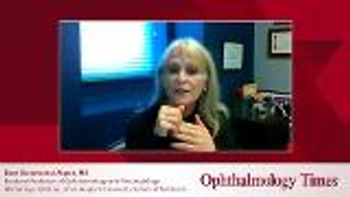


Delivery into the suprachoroidal space may potentially extend the duration of therapeutic action and reduce or relieve the treatment burden for wet AMD.
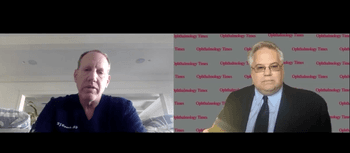
Robert Weinstock, MD, presents data from a retrospective multicenter study focusing on the efficacy of dexamethasone intraocular suspension 9% delivered at the time of cataract surgery.

Rudy Nuijts of the University Eye Clinic Maastricht, the Netherlands, discusses the highlights of his AAO 2020 presentation on a combination treatment regimen for lowering the incidence of cystoid macular oedema following category surgery.
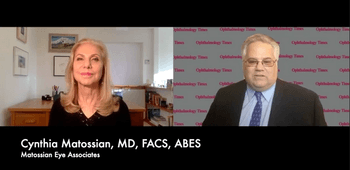
Cynthia Matossian, MD, FACS, ABES presents the highlights of a poster on outcomes with dexamethasone intraocular suspension 9% and concomitant postoperative anti-inflammatory medications.

Kristen Brotherson, vice president, US surgical marketing for Alcon, discusses some of the recent advances in cataract surgery-related technologies, including a new advanced lens for patients with presbyopia (AcrySof IQ Vivity IOL).
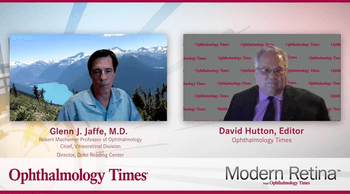
Glenn J. Jaffe, MD, presents a summary of the results of a confirmatory study on a previous Phase III trial that examined sustained drug delivery for the treatment of uveitis, as well as data on the 36-month results in the second, confirmatory phase 3 study of YUTIQ.

Ram Liebenthal, U.S. general manager for Heidelberg Engineering, discusses how the company continues to invest in the Spectralis platform in terms of hardware and software improvements.

Josh Anderson, head of U.S. retina sales and marketing for Alcon, outlines what attendees will learn including product updates, new technologies, and practice management materials for ophthalmologists and their patients during the COVID-19 pandemic.
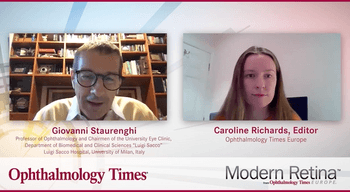
Prof. Giovanni Staurenghi, chairman of the University Eye Clinic, Department of Biomedical and Clinical Sciences at the University of Milan’s Luigi Sacco Hospital, Italy, discusses his presentation from this year's AAO, including findings from the HARBOR study of macular atrophy in AMD patients treated with ranibizumab.

Ted Leng, MD, MS, Byers Eye Institute at Stanford, and medical advisor for Verana Health, talks about data insights for retinal surgeons. Steven D. Schwartz, MD, Stein Eye Institute, UCLA, highlights his AAO presentation, “New Insight into Real-World U.S. Injection Data."

Chris Brittain, MBBS, BSc, MBA, MRCOphth, vice president and global head of ophthalmology product development for Genentech, provides an overview of the company’s podium presentations from the PDS with ranibizumab to faricimab.
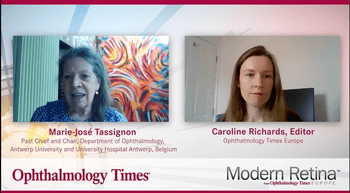
Prof. Marie-José Tassignon, past chief and chair, Department of Ophthalmology, Antwerp University and University Hospital Antwerp, Belgium, expands on her upcoming AAO presentation by providing an overview of her novel technique in performing a risk-free posterior capsulorhexis.

Anne L. Coleman, MD, president of the American Academy of Ophthalmology, offers a preview of its virtual 2020 annual meeting. The AAO is rising to meet the challenges of staging a large-scale event in a virtual setting.
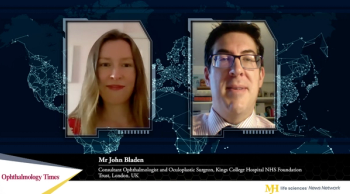
John Bladen, MBBS, BSc, MRCS, PGCert, PhD, FRCOphth, consultant ophthalmologist and oculoplastic surgeon, King's College Hospital NHS Foundation Trust, London, UK, speaks on the institution's response and workflow adjustments made amid the coronavirus pandemic, how virtual appointments have helped in working through a backlog of patients, and whether cancer may be the next big crisis in the UK due to missed diagnoses during the lockdown.

John J. Grande, CFP, and John S. Grande, CFP, of Grande Financial Services, continue their discussion on how having a solid financial plan in place can ease anxiety amid the pandemic, their advice to ophthalmologists contemplating retirement, as well as the uncertainty surrounding the economy ahead of the 2020 election, ongoing virus, and the unknown of what's in store for 2021.
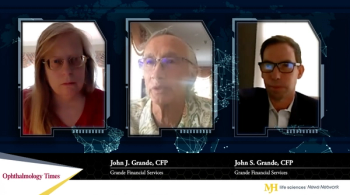
John J. Grande, CFP, and John S. Grande, CFP, of Grande Financial Services, speak on how ophthalmologists should be working on or revisiting their financial plans six months into the ongoing coronavirus pandemic and ahead of a possible second wave, as well as the potential financial repercussions the economy may face.
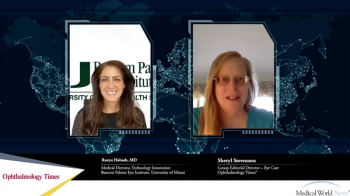
Ranya Habash, MD, medical director, Technology Innovation, Bascom Palmer Eye Institute, University of Miami, speaks on what she wished she’d known about telemedicine in ophthalmology five years ago, the impact of the pandemic in regards to FDA regulations, as well as why the future of telemedicine requires a new way of thinking.

Ranya Habash, MD, medical director, Technology Innovation, Bascom Palmer Eye Institute, University of Miami, speaks on the obvious and not-so-obvious capabilities of telemedicine available to ophthalmologists in the ongoing pandemic.
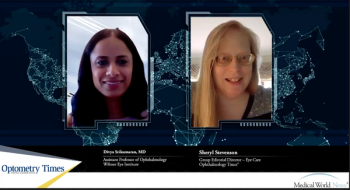
Divya Srikumaran, MD, assistant professor of Ophthalmology at the Wilmer Eye Institute (Johns Hopkins University), discusses the results of a study published in the American Journalism of Ophthalmology regarding the growth and shift of the physician assistant profession into specialty care as well as the more valuable role PAs are taking in providing healthcare.
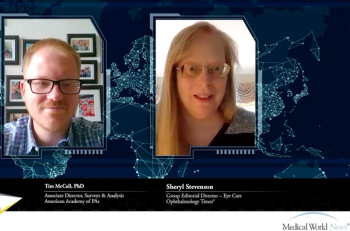
Tim McCall, PhD, associate director, Surveys & Analysis, American Academy of PAs, discusses a study published in the American Journal of Ophthalmology exploring the expanding role of assistant physicians into specialty care and ophthalmology practice.
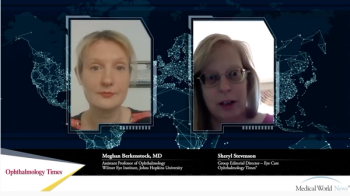
Megan Berkenstock, MD, assistant professor of ophthalmology at the Wilmer Eye Institute (Johns Hopkins University) speaks on the change in patient diagnoses and visit numbers by subspecialties in the weeks before and after the discovery of COVID-19 as well as the protocol needed to allow for the program's ambulatory surgery centers.
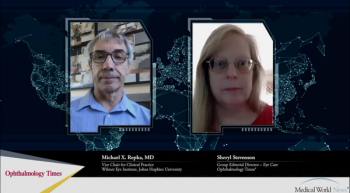
Michael X. Repka, MD, vice chair of clinical practice at Wilmer Eye Institute (Johns Hopkins University) speaks on the institution's latest protocol changes allowing for the resumption of elective surgery as well as the adaptations clinicians have had to make in order to ensure the continuation of clinical practice at Wilmer Eye Institute.